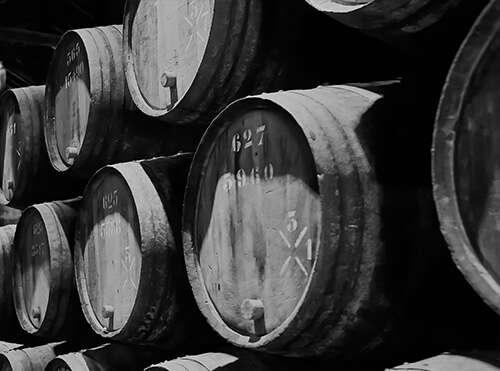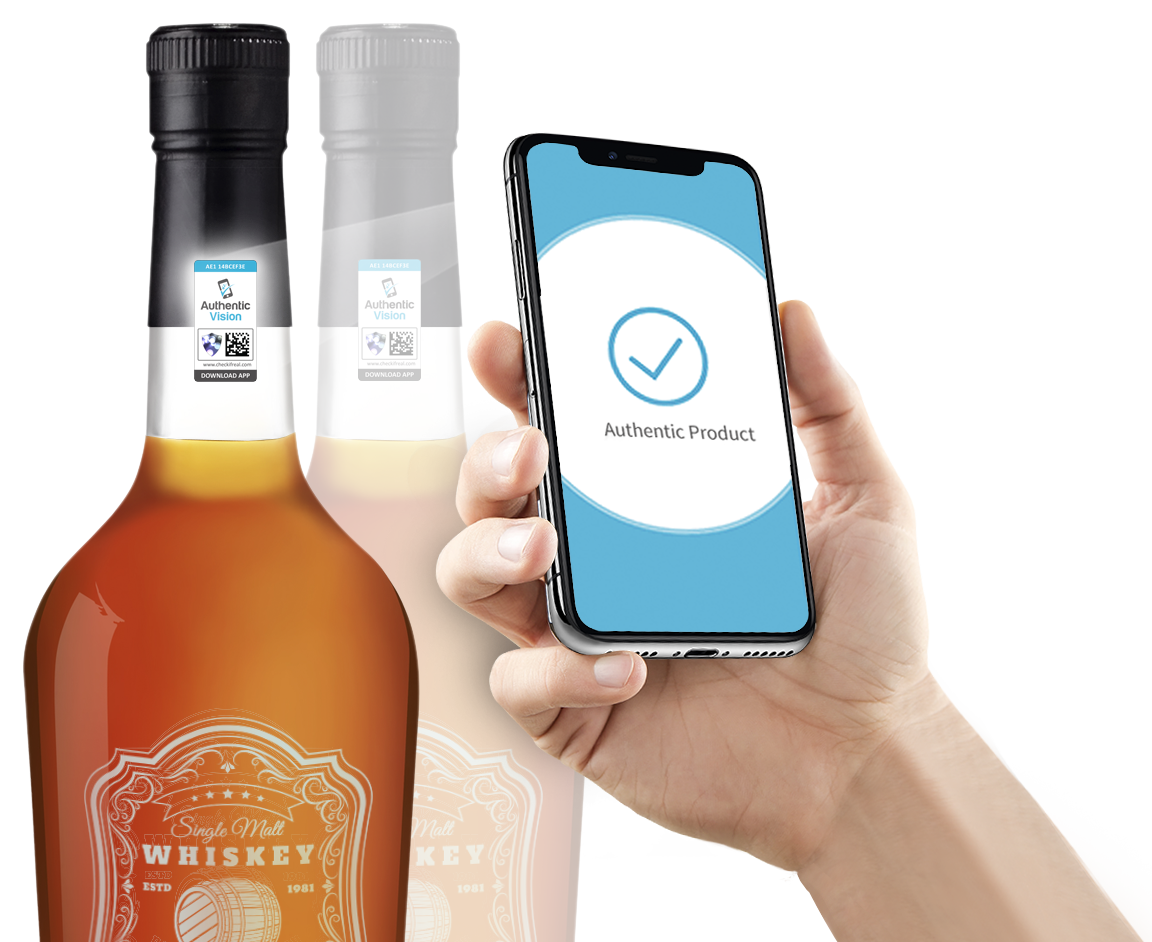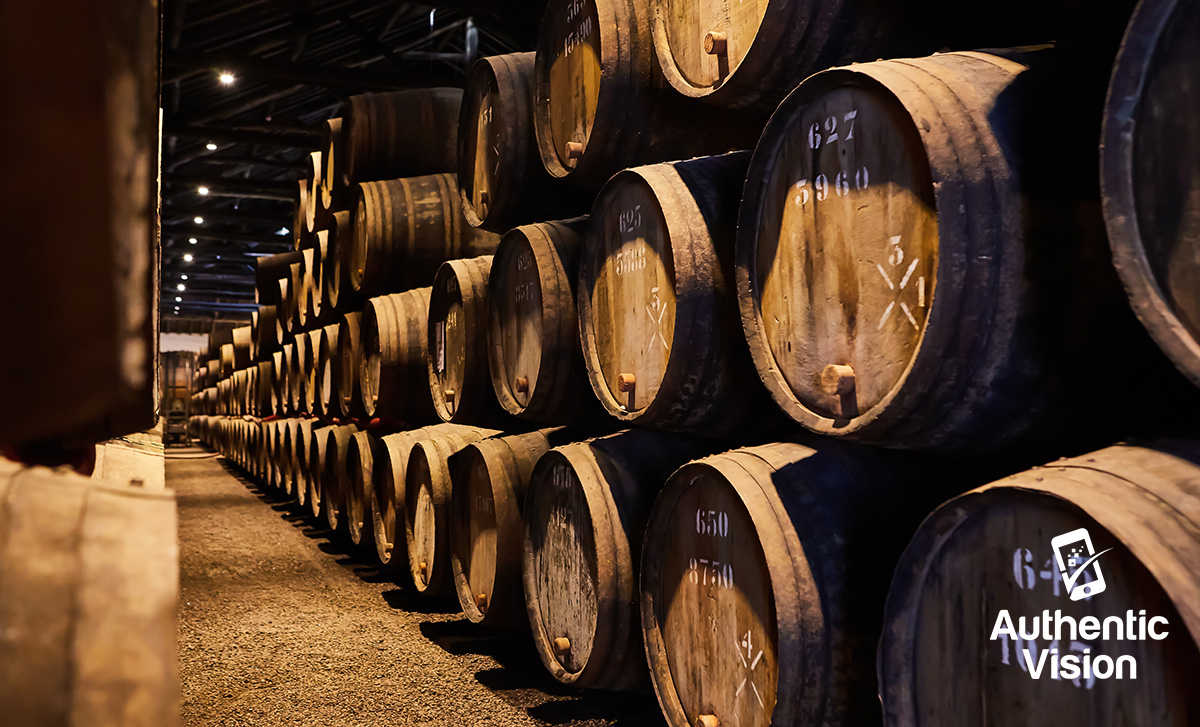Cases of Counterfeit and Tainted Alcohol are Reaching Epidemic Levels Hurting Consumers and Damaging Legitimate Brewers, Distillers and Vintners.
Counterfeit, bootlegged and adulterated alcohol endangers legitimate brewers’, distillers’ and vintners’ customers and businesses – anti-counterfeiting tools can help them fight back.
Salzburg, 2020-09-08
While cases of alcohol poisoning have been reported as far back as 1976, in 2020, healthcare professionals and government officials have seen a significant increase in deaths tied to the adulteration of alcohol products. In fact, 2020 is the deadliest year on record for alcohol poisonings.
While the motivations driving the proliferation of adulterated alcohol products vary from misinformed consumers, counterfeiters interested only in a quick buck, and unsavory hotel and bar employees seeking to eke a few more drinks from that bottle of premium spirits, it is vital that brewers, distillers and vintners take steps to protect their brands and businesses from counterfeiters.
The Epidemic of Tainted Alcohol
Suggesting that methanol or ethanol tainted alcohol has reached epidemic proportions would not be stretching the truth. Instances of tainted alcohol occur around the globe. Earlier this year in June, Turkish Police seized 18 tons of counterfeit alcohol tainted with ethanol, a non-consumable form of alcohol often found in caustic cleaners, and created by bootleggers ostensibly to avoid new alcohol taxes in the region.
Sophisticated counterfeiters and bootleggers can copy bottles and labels, and then these counterfeit products show up in black-market sales. In May of this year, more than 70 deaths were attributed to tainted black-market alcohol in Yucatan, Mexico. Tainted and contaminated alcohol is often peddled in nightclubs and tourist spots. In 2018, the United States State Department issued an advisory for US citizens heading to Mexico and encouraging caution when consuming alcohol while traveling in Mexico.
Alcohol counterfeiting takes many forms

Alcohol counterfeiting can take many forms, including re-filling bottles with tainted or adulterated products, mimicking the design of an authentic bottle and utilizing counterfeit labels or counterfeit designation of origin labels. These fraudulent labels suggest premium alcohol made from premium ingredients when, in reality, the product’s ingredients and origin could be anyplace. Alcohol counterfeiters have been known to promote gray market products, produced using low-quality or dangerous knock-off ingredients, that attempt to copy the design and labeling of authentic liqueurs of premium spirits.
The risks to brewers, distillers, and vintners
While many jurisdictions have instituted taxes and fees on alcohol products, bootleggers and counterfeiters avoid these mechanisms by selling through the black market. But distribution channels and consumers lack the expertise to identify adulterated or counterfeit products. Thus, when bootlegged or counterfeit products reach consumers, the risks still fall on legitimate producers.
Legitimate brewers, distillers and vintners face significant risks beyond the headlines of lost lives due to adulterated, tainted or counterfeit alcohol.
- Most brewers, distillers and vintners have little insight into lost sales and profits due to counterfeit or bootlegged products. There is simply no accounting for sales of products distributed and sold by counterfeiters. How would producers know where counterfeit products are sold or consumed?
- There are other indirect financial costs, including wasted advertising and marketing dollars used to build your brand but then co-opted by bootleggers and counterfeiters, the potential legal expense defending your legitimate brand from a lawsuit due to an adulterated or counterfeit product, and the costs of rebuilding your reputation should one of your products be found adulterated or counterfeited.
- Legitimate distillers, vintners and brewers spend considerable time, effort and expense to create high-quality products and crafting their brand image so that it represents the unique attributes of the product – high-quality ingredients, exceptional taste, and an enjoyable drinking experience. But counterfeiters are concerned only with profits – not the exceptional product and brand legitimate producers have carefully cultivated. A single sip of tainted or adulterated beer, wine or spirits purchased through the black market or sold by an unscrupulous employee can destroy brand trust with consumers.
Considering the time, expense and effort that distillers, vintners and brewers put into their products to deliver a quality drinking experience, it is surprising that when the product leaves the bottler or canning facility, producers are out-of-the-loop as the product makes its way to consumers palettes. Anticounterfeiting tools can provide insights into where consumers are consuming their products.
How can brewers, distillers and vintners protect themselves?
 Some tools can help brewers, distillers and vintners protect their customers, brands and products, but they’ll need to rely on advanced technology that leverages computer vision and artificial intelligence. These tools embed advanced anti-counterfeiting technologies within a smartphone app that is easy-to-use and works on hundreds of smartphones anywhere around the globe. One app, Authentic Vision’s CheckIfReal app, is free and assures consumers they are consuming a genuine product.
Some tools can help brewers, distillers and vintners protect their customers, brands and products, but they’ll need to rely on advanced technology that leverages computer vision and artificial intelligence. These tools embed advanced anti-counterfeiting technologies within a smartphone app that is easy-to-use and works on hundreds of smartphones anywhere around the globe. One app, Authentic Vision’s CheckIfReal app, is free and assures consumers they are consuming a genuine product.
The benefit of using an app is that it doesn’t rely on your customers being label experts, barcode experts or regulatory experts who can identify when a label or regulatory mark is counterfeit. Nor does it depend on consumers’ ability to identify the unique features of your packaging that would affirm they have a genuine product. Instead, it uses advanced technology such as real-time analytics, computer vision and machine learning to assure them the wine, spirit or beer they are consuming is authentic – exactly as the producer or bottler intended.
The free app scans a unique tamper-proof holographic label attached to the product packaging and instantly informs distributors, sellers, servers and customers whether the product is authentic or counterfeit. The CheckIfReal app is from Authentic Vision. Brewers, distillers and vintners affix Authentic Vision’s tamper-proof label to the product where it is produced and bottled, assuring you that the product inside is authentic and has not been tainted or adulterated.
Incidents of counterfeit, adulterated or tainted spirits and wine are on the rise. Brewers, vintners and distillers are at risk, but there are effective and easy-to-use tools that can help them protect their customers, brands, reputation and profits.
About Authentic Vision
Authentic Vision provides anti-counterfeiting and authentication technologies designed to protect your organization’s investments in product innovation, brand value, and reputation while creating new opportunities to increase trust and engagement with consumers. The company’s unique Holographic Fingerprint™ tag, mobile authentication app, and real-time analytics capabilities protect physical assets from counterfeiting and alert brand and product owners to potential fraudulent activity. Their anti-counterfeiting and authentication technologies help to minimize lost revenues and mitigate liability due to counterfeits and create new opportunities to engage with consumers through loyalty programs, incentives, and future experiences that bridge the physical and digital. Visit AuthenticVision.com to learn more about their solutions, view case studies, download their consumer app, or read the latest insights on how anti-counterfeiting and authentication technologies can help your organization.
Contact
Gernot Kalchgruber, Authentic Vision

